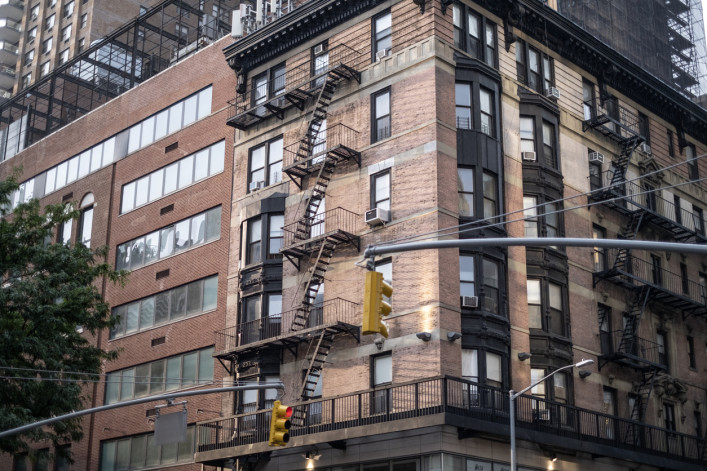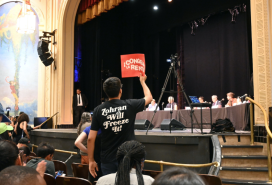Ask Sam: My landlord claims to have no record of several rent payments. How do I prove him wrong?
- The burden of proof is on the renter, so document your payments via your canceled money orders

As long as you have the canceled checks or money orders, you can prove you did indeed pay.
iStock
After moving into my current apartment, I paid rent for several months with money orders until digital payments were allowed. Now one of my money orders, and two of my former roommates’ money orders, aren’t showing up in the landlord’s ledger. The property manager claims I owe him. What do I do?
Legally speaking, the burden of proof is on the person making the payments, but it shouldn’t be difficult to demonstrate that you paid the rent, said Sam Himmelstein, a lawyer who represents residential and commercial tenants and tenant associations.
“Coming up with the records of checks or money orders is all you have to do,” Himmelstein said. “And get the same from your former roommates so you can show those to the landlord, too.”
The latter is especially important, because otherwise you could be on the hook for their supposedly missing payments. All roommates listed on an apartment lease in New York City are “jointly and severally liable” for rent payments, which means that not only are all tenants held responsible, but also that each individual tenant could be held liable for the entire rent if their roommates suddenly move out or fail to pay their portion.
So get those records of paid rent from your roommates as well as your own payment history, and send that to your landlord. Himmelstein suggested sending a letter via certified mail in which you lay out the whole situation.
“Write the landlord that he is claiming that you missed payments, but here are the canceled money orders or checks, and please credit my account to reflect a zero balance,” Himmelstein said. “You should also inform him that if he tries to start a court case against you for the payments, which have been made, you will make a counterclaim for harassment and seek repayment of any attorney’s fees.”
Note that the vast majority of NYC apartment leases include a clause that states if your landlord sues you and wins, you have to pay their attorney’s fees—but if you win, the landlord has to pay your fees.
But you want to avoid going to court at all, not only to spare yourself the hassle, but also to avoid ending up on the tenant blacklist. You also want to avoid a conflict with your landlord that leads to him not renewing your lease. This would be considered landlord retaliation, but that’s very difficult to prove.
Finally, it could be worthwhile to look into whether your apartment should be rent-stabilized. If it's in a building of six units or more, built before 1974, it might be—which would mean protection from non-renewal of your lease, in addition to all kinds of other benefits.
Ask Sam: What are my rights as a NYC renter in a market-rate apartment? (sponsored)
Ask Sam: My landlord won't renew my lease. I think he's retaliating against me, but how do I prove it? (sponsored)
Ask Sam: How do I find out if my apartment should be rent-stabilized—and if the landlord owes me money? (sponsored)
Read all our Ask a Renters Rights Lawyer columns here.
Sam Himmelstein, Esq. represents NYC tenants and tenant associations in disputes over evictions, rent increases, rental conversions, rent stabilization law, lease buyouts, and many other issues. He is a partner at Himmelstein, McConnell, Gribben, Donoghue & Joseph in Manhattan. To submit a question for this column, click here. To ask about a legal consultation, email Sam or call (212) 349-3000



























